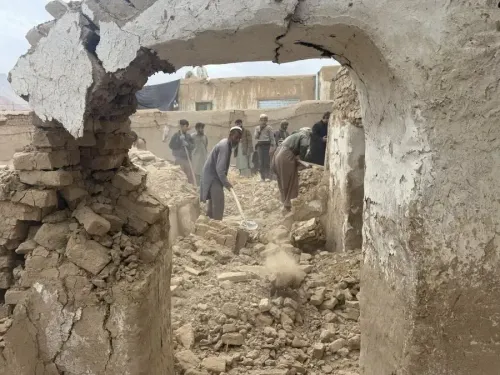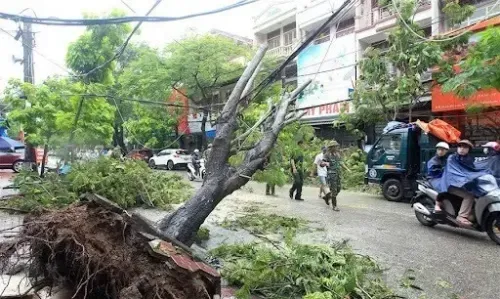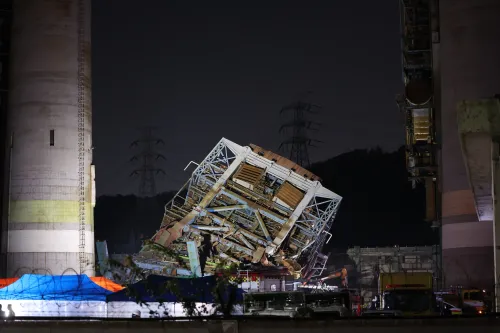South Korea: Has the Heat-related Death Toll Reached 16 Amid Record Heat Waves?

Synopsis
Key Takeaways
- 16 fatalities reported due to heat-related illnesses.
- Over 2,900 patients treated since mid-May.
- Record-breaking 22 tropical nights in Seoul.
- Patients aged 65+ are most affected.
- Heat wave alerts in effect nationwide.
Seoul, July 31 (NationPress) A total of 16 individuals have succumbed to heat-related illnesses in South Korea this year, as the nation grapples with extreme heat waves, according to health officials on Thursday.
As of Wednesday, approximately 2,900 patients had sought emergency care for heat-related ailments since mid-May, when authorities initiated the heat illness monitoring system. Out of these patients, 16 fatalities have been reported, as stated by the Korea Disease Control and Prevention Agency (KDCA), cited by Yonhap News Agency.
The ongoing heat wave has led to daily reports of heat-related illnesses exceeding 100 cases for nine consecutive days since July 22. Additionally, fatalities have been recorded for four days straight.
In comparison to the same timeframe last year, the number of affected patients has surged by approximately 2.6 times, while the death toll has more than doubled, according to KDCA.
Among the reported cases this year, heat exhaustion (commonly referred to as sunstroke) constituted 60.7%, followed by heat stroke at 16.4%, heat cramps at 13.4%, and heat syncope at 8.1%.
In terms of age demographics, individuals aged 65 and older make up 31.7% of the total patients.
Heat wave alerts are currently in effect across most regions of the country.
The national weather agency has reported that Seoul experienced the highest number of tropical nights for any July, as of Wednesday, indicating that the heat wave is expected to intensify in the days ahead.
A tropical night is defined as a night when temperatures remain above 25°C from 6:01 p.m. to 9 a.m. the following day.
So far this month, Seoul has recorded 22 tropical nights, marking a historic high for July since modern weather records began 117 years ago, according to the state weather service.
Last night, the temperature in the capital dipped only to 29.3 degrees Celsius, raising the count of tropical nights in July to 22 days, the highest since records began in 1908, as reported by the Korea Meteorological Administration (KMA).
The previous record was 21 days, established in July 1994. A tropical night occurs when nighttime temperatures remain above 25 degrees Celsius from 6:01 p.m. to 9 a.m. the following day.
With one night left in July, the record could potentially extend to 23 days, as the KMA indicates Seoul has experienced tropical nights for 70% of this month.
The KMA noted that last night's low of 29.3 degrees Celsius may set a new record for the highest daily low in July, provided the temperature does not drop below this level tonight. The previous record was 29.2 degrees Celsius, recorded on July 23, 2018.
Expected maximum temperatures on Thursday across the nation will range from 31 degrees Celsius to 37 degrees Celsius, with Seoul, Daejeon, and Daegu reaching up to 36 degrees Celsius.









